The Tibetan Centre for Human Rights and Democracy (TCHRD) unveiled this morning the much-awaited website to decode Chinese Communist Party (CCP) slogans and jargon at a press conference held at the Press Club of India in New Delhi.
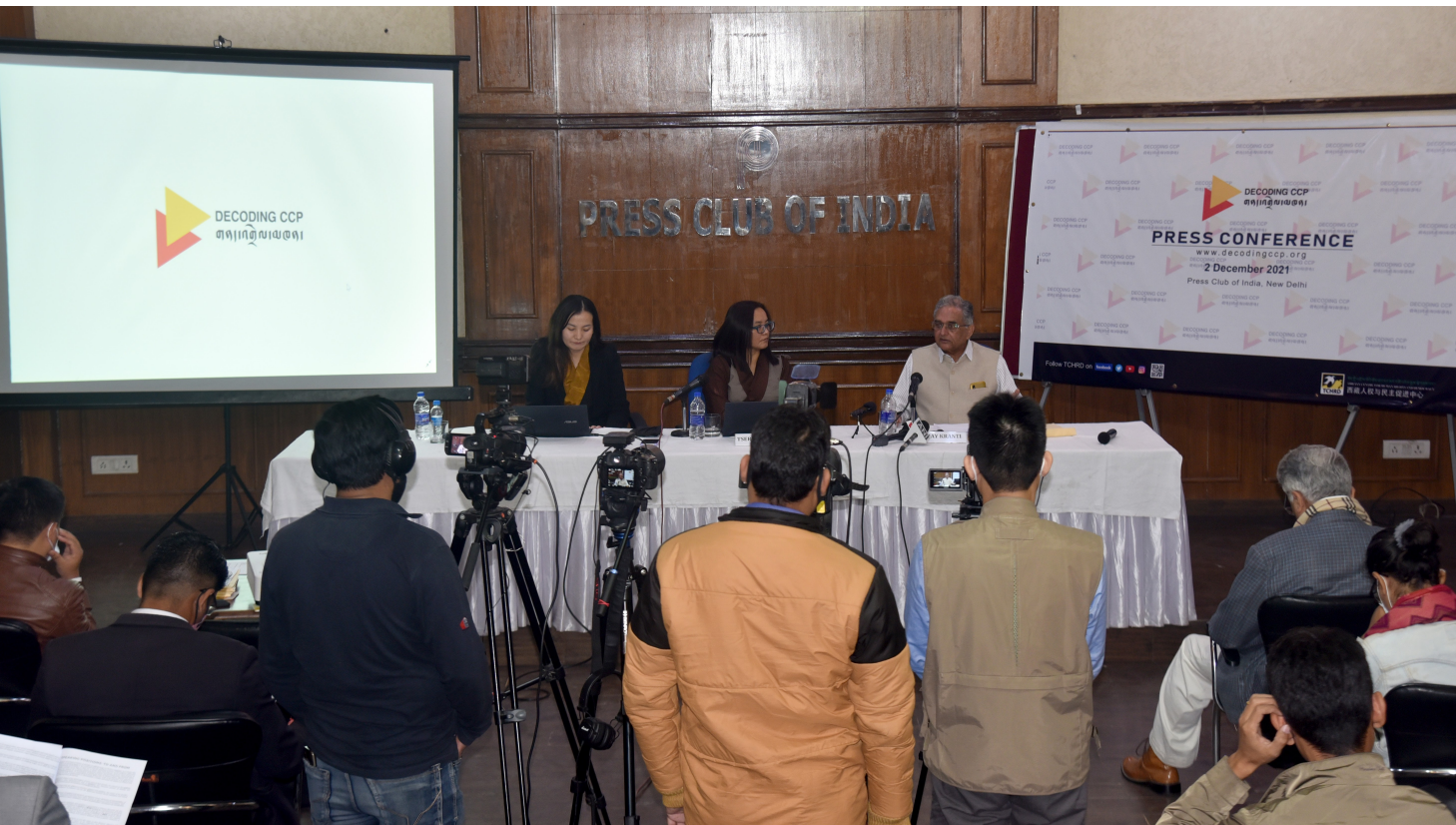

The Tibetan Centre for Human Rights and Democracy (TCHRD) unveiled this morning the much-awaited website to decode Chinese Communist Party (CCP) slogans and jargon at a press conference held at the Press Club of India in New Delhi.

The Tibetan Centre for Human Rights and Democracy (TCHRD) condemns the unjust sentencing of Tibetan writer Lhaden (Pen-name: Dhi Lhaden) to four years in prison and calls on the Chinese authorities to end all restrictions on free speech and dissent in Tibet.

Right now, China’s internet -a world unto itself- and official media are praising an online post that seems, from beginning to end, to be an emoji nailing this bitterly angry moment for China.
This one post, endlessly reposted by People’s Daily and Xinhua news agency, is full of the coded keyword jargons in use in China, which so puzzle everyone else.
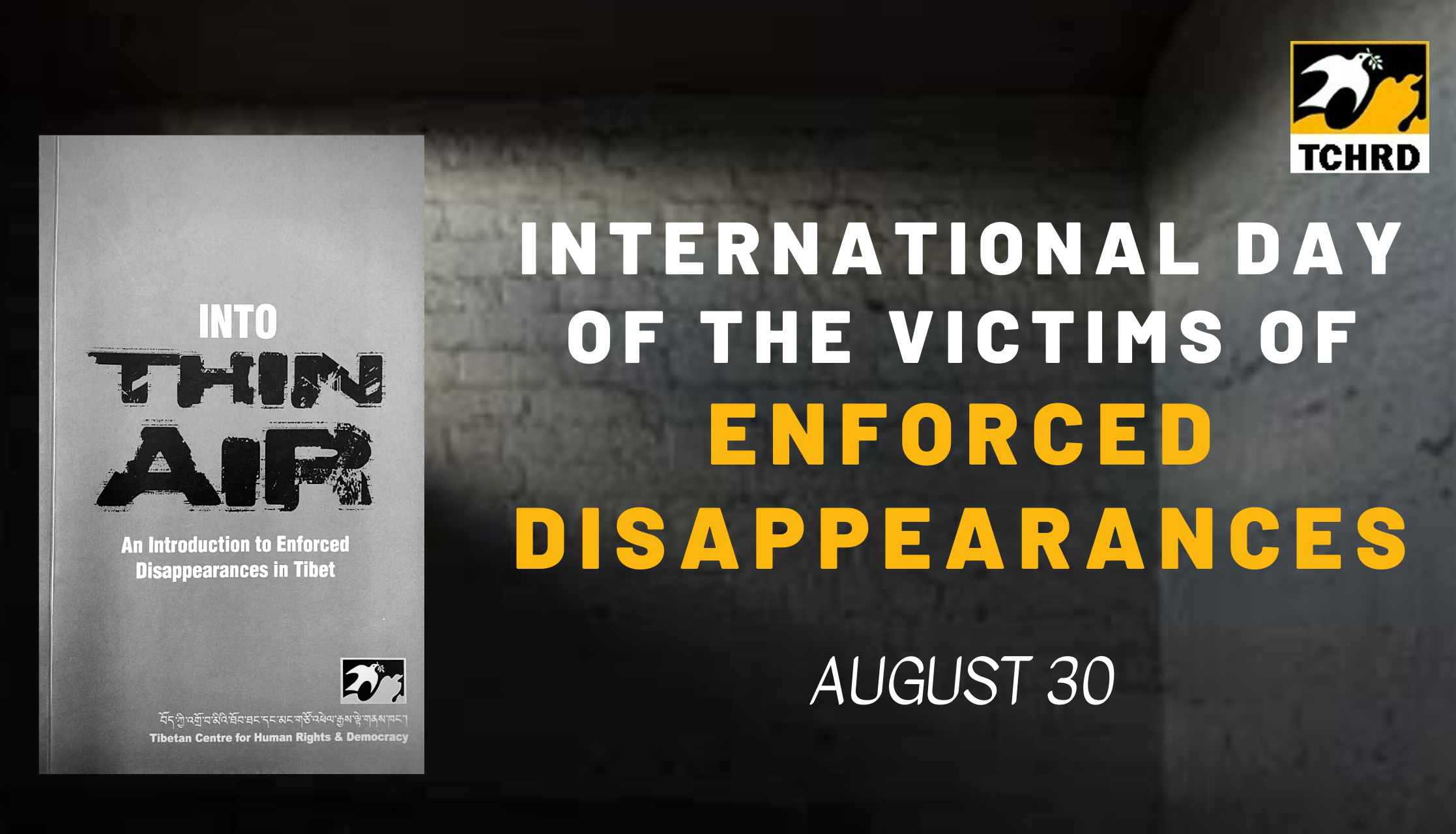
On the 38th International day of the victims of enforced disappearances, TCHRD remembers all victims of enforced disappearance inside Tibet and calls on China to ratify the Convention for the Protection of all Persons from Enforced Disappearances (Convention).
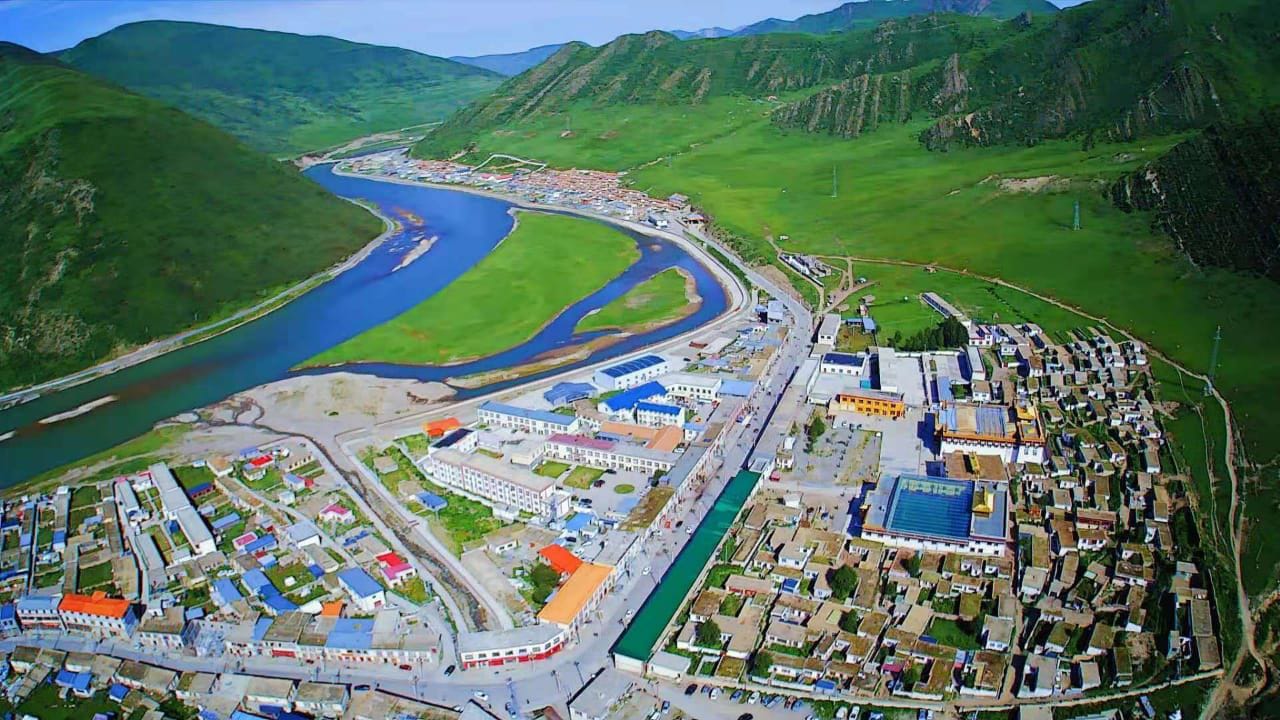
TCHRD has been informed by a reliable source that Chinese security forces detained 60 Tibetans on 23 August from Wonpo village in Dzachuka area and took them for a two-day interrogation 70 km away in Sershul (Ch: Shiqu) County, Kardze (Ch: Ganzi) Tibetan Autonomous Prefecture, Sichuan Province, in the Tibetan province of Kham.
On Wednesday 17 February 2016, a conference on Tibet, “Rights, Reality and the Law” was held in Denver, Colorado. The Tibetan Centre for Human Rights and Democracy (TCHRD) hosted the event with the Nanda Center for International and Comparative Law, the International Law Society, and the Korbel School’s Center on Rights Development. There were six speakers at the conference divided…

The Tibetan Centre for Human Rights and Democracy (TCHRD) presents footages of students at Tibetan Youth Hostel, Bangalore, discussed issues and candidates related to the 2016 elections for Sikyong and Tibetan parliament in exile. The discussion was facilitated by TCHRD senior researcher Mr Tenzin Nyinjey and information officer Ms Sonam Dolkar. The video series are part of TCHRD’s ‘Youth Speak: Tibetan…

The Tibetan Centre for Human Rights and Democracy (TCHRD) has published a report in Tibetan on the Chinese Communist Party’s (CCP) so-called “Mass Line Campaign” in Tibetan areas. The report titled lam chok mar po (The Red Path) documents the human rights violations caused by the ‘mass line’ political campaign in Tibet.
Under the direction of Xi Jinping, the president of the People’s Republic of China (PRC), the CCP has launched a Mass Line political campaign throughout China, reminiscent of Mao Zedong’s rectification campaign, and aimed at eliminating all opposition, both real and perceived. Under the guise of combatting corruption, the CCP has begun striking hard upon both the “tigers and flies.” As of now, more than hundred senior figures of the party have been indicted and punished under this campaign, including former head of China’s security Zhou Yongkang, sentenced to life in prison in June this year. Moreover, under slogans such as “the Four Misdeeds” and “Eight Principles” meant to “clean up the Party,” grassroots officials have been subjected to investigation for corruption and misuse of power.
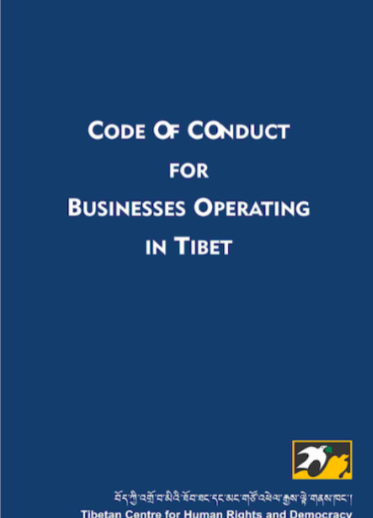
On 29 June the Tibetan Centre for Human Rights and Democracy (TCHRD) will release a code of conduct for businesses operating in Tibet. The code of conduct highlights the major human rights issues in Tibet and their human rights obligations. In 35 articles divided into eight categories, the code of conduct outlines how businesses can avoid contributing to or participating in human rights abuses in Tibet.
The code of conduct does not make any new demands or place extra requirements on businesses operating in Tibet. Instead, the code of conduct draws upon existing legal standards and standards accepted and endorsed by the People’s Republic of China (PRC). Since their release in 2011, the UN Guiding Principles on Business and Human Rights defined businesses’ human rights obligations. The Guiding Principles have been endorsed by the PRC. The code of conduct also draws heavily on the Chinese Chamber of Commerce of Metals, Minerals and Chemicals Imports and Exports (CCCMC) Guidelines for Chinese businesses operating outside of the PRC. Even though the CCCMC Guidelines are not official government standards, they have been endorsed by the PRC and held as an example of the PRC’s commitment to corporate social responsibility.
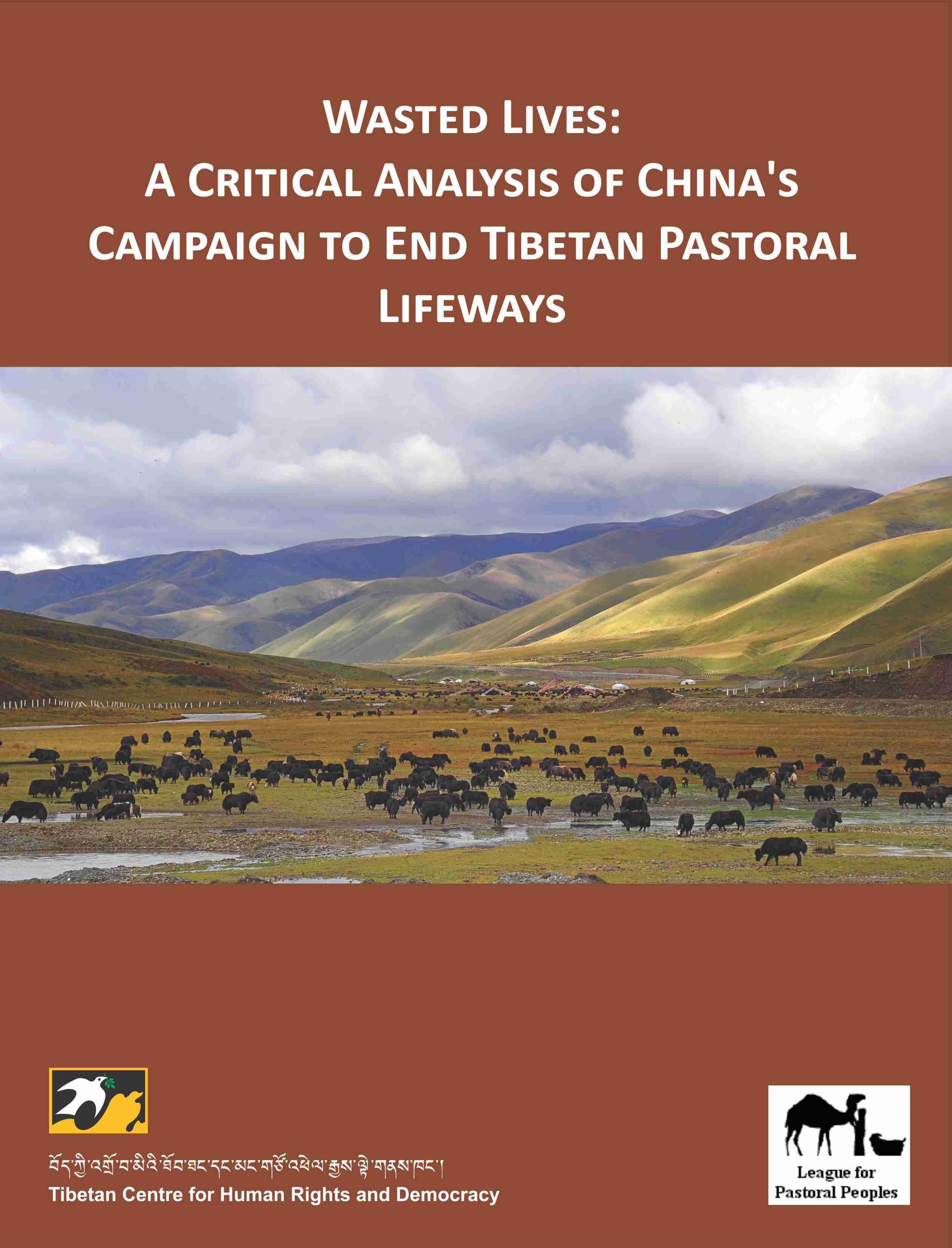
Is there anything new that can be said about the disappearing nomads of Tibet? For years they have been removed from the plateau pastures that purify the great rivers of Asia, to be rehoused in concrete barracks, without their animals or livelihood. This is usually reported as coercion by a state determined to end nomadism. That has become a standard narrative. The alternative narrative, generated by China’s official media, is that the nomads are all voluntary ‘ecological migrants’ giving up their lands for the greater good of the planet, to allow degrading lands to become a wilderness of pristine grassland, to better protect those rivers watering almost all of Asia.
‘Wasted Lives: China’s Campaign to End Tibetan Nomadic Lifeways’ cuts through these stereotypes and extremes, with a wealth of new evidence. This co-publication by Tibetan Centre for Human Rights & Democracy (TCHRD) and League for Pastoral Peoples (LPP) takes the reader onto the pasture, to hear Tibetan voices. That is what has been strikingly missing till date.

The Tibetan Centre for Human Rights and Democracy (TCHRD) exposed major human rights violations committed by Chinese government in Tibet and the repressive policies that facilitate these violations during recent meetings and interactions with politicians, diplomats, academics, media and the general public in Basque Autonomous Region (Basque Country), Spain.
During a weeklong visit to Donostia/San Sebastian in Gipuzkoa Province, Basque Country, TCHRD executive director Tsering Tsomo drew attention to the repressive state of affairs in Tibet where the Chinese authorities continue to adopt a hardline approach denying basic human rights and freedoms that are taken for granted in many other countries. In her various public and private meetings, Tsomo strongly condemned China’s use of force, violence and fear to extract absolute loyalty and obedience from Tibetans to its repressive rule, and called Tibet a human rights black hole, a major blot on China’s international standing and reputation.